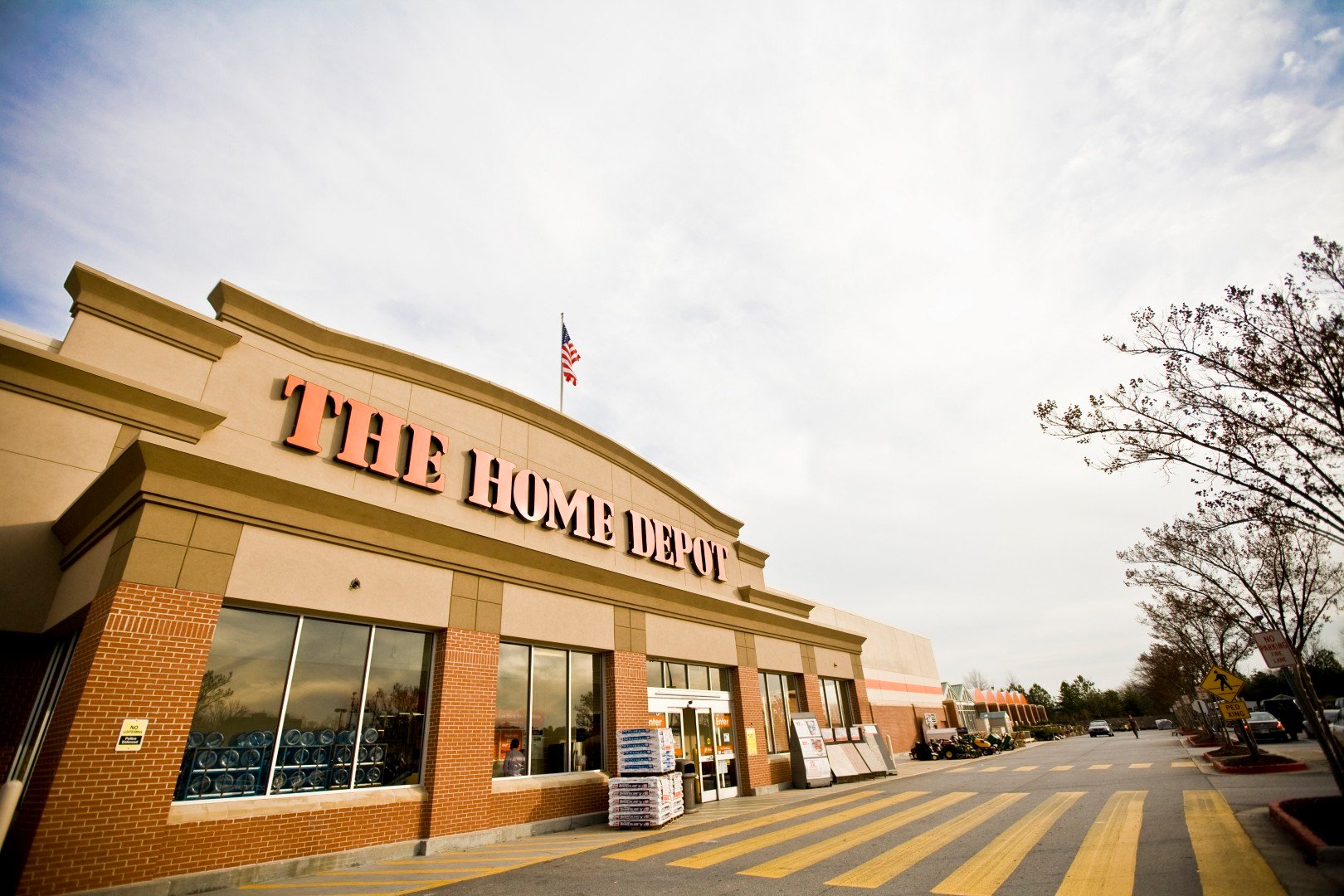Severe weather conditions in recent months took a toll on the performance of numerous retailers. But this was not the case for all. Home-improvement retailers are in a state of merriment since the colder weather led to higher sales of certain products, such as repair equipment and generators. However, it did affect sales to some extent because people postponed their plans to furnish new homes.
Nonetheless, according to the U.S. Department of Commerce, sales of single-family homes increased to a five-and-a-half-year high in January, suggesting that demand for home-improvement products should also increase. Home-improvement retailer Home Depot (HD 0.41%) recently posted its fourth-quarter results, which not surprisingly delighted investors and sent the stock price north.
Digging into the numbers
Fourth-quarter revenue stood at $17.7 billion, a 3% decline versus last year. The drop was mainly due to one fewer week as compared to the year-ago period. Excluding the effect of last year's extra week, revenue actually surged 3.9%. Moreover, the year-ago quarter benefited largely from the effects of superstorm Sandy, which led to higher rebuilding activities and repairs. Home Depot also registered comparable-store sales growth of 4.4%. This includes comp-sales growth of 4.9% in its U.S. stores, where demand for products increased.
On the other hand, peer Lowe's (LOW 1.31%) reported comparable-store sales growth of 3.9% along with a revenue increase of 5.6% to $11.7 billion. However, Lowe's missed estimates on both the top and bottom lines; earnings per share came in at $0.29, whereas estimates were for $0.31.
Home Depot's focus on premium products has more than benefited the company. It has been witnessing sales growth for these items over the last four quarters, as affluent customers are looking for premium products for their homes.
In fact, transactions worth more than $900 grew 5.5% during the quarter, whereas transactions valued at less than $50 increased by only 2.5%. This helped in boosting same-store sales. Even Lowe's witnessed a similar trend; orders worth more than $500 jumped 8.9%, whereas purchases between $50 and $500 grew by only 2.2%. Therefore both retailers are enjoying the advantages of customers' splurging on big-ticket items.
Home Depot's earnings increased to $0.73 per share as compared to $0.68 per share in the year-ago period. This increase is mainly attributable to the company's cost-reduction strategies, such as localizing merchandise and improving distribution capabilities. Also, its strategy to shift to centralized distribution centers helped in cutting costs by 4% during the fourth quarter.
Factors to consider
Along with remarkable numbers, there are many other points to be considered when investing in Home Depot. Since affluent customers are willing to spend on premium items, the retailer will be expanding this category further. In fact, it plans to launch a new patio-furniture line and barbecue system this spring.
Since the company has been witnessing growth in the online-sales category, which grew 50% in the fourth quarter, it will expanding e-commerce. It plans to invest 40% of its capital expenditures on information technology. Moreover, Home Depot acquired online window-covering retailer Blinds.com, which will further increase its revenue.
The home-improvement retailer plans to open seven new stores this year, which will enhance its retail presence. The company expects spring demand to increase. Therefore, it will hire 80,000 seasonal workers during this period. It is also building up capabilities in order to offer same-day delivery to customers, which should attract people who are willing to pay a premium for faster service.
Additionally, Home Depot's suppliers have been growing, which should benefit the retailer. For instance, Whirlpool (WHR +0.64%) is a manufacturer of home appliances and it supplies products to Home Depot.
Whirlpool's last quarter was standout, with a 6.2% increase in revenue and 29.7% surge in earnings. Also, the company provided a bright outlook and expects its earnings to grow by 19.8% to 24.8% in fiscal 2014. Demand for home appliances will increase, which in turn will lead to higher revenue for Home Depot.
Also, Whirlpool plans to introduce new products during the year, which will attract more customers. Home Depot is expected to take advantage of innovations made by its suppliers.
Cause for concern
Although Home Depot's future looks bright, there is reason to be cautious. The housing-market index dropped to 46 in February from 56 in January, according to the National Association of Home Builders. Ideally, the index should be above 50, which shows that the market for homebuilders is strengthening. The latest result reflects a weak market, which might hamper Home Depot's sales.
The takeaway
Although a drop in the housing-market index reflects weakness, there is more than one reason to believe in this company. Home Depot has been performing extremely well and has a host of strategies to attract more customers. Also, postponed sales during the winter should start benefiting the retailer in the current quarter. Hence, the company is banking on the spring.
Moreover, the company increased its dividend by 21% to accompany a share-repurchase plan of $5 billion. These were key reasons for the stock market's excitement, and investors should eye this company as a long-term investment.








